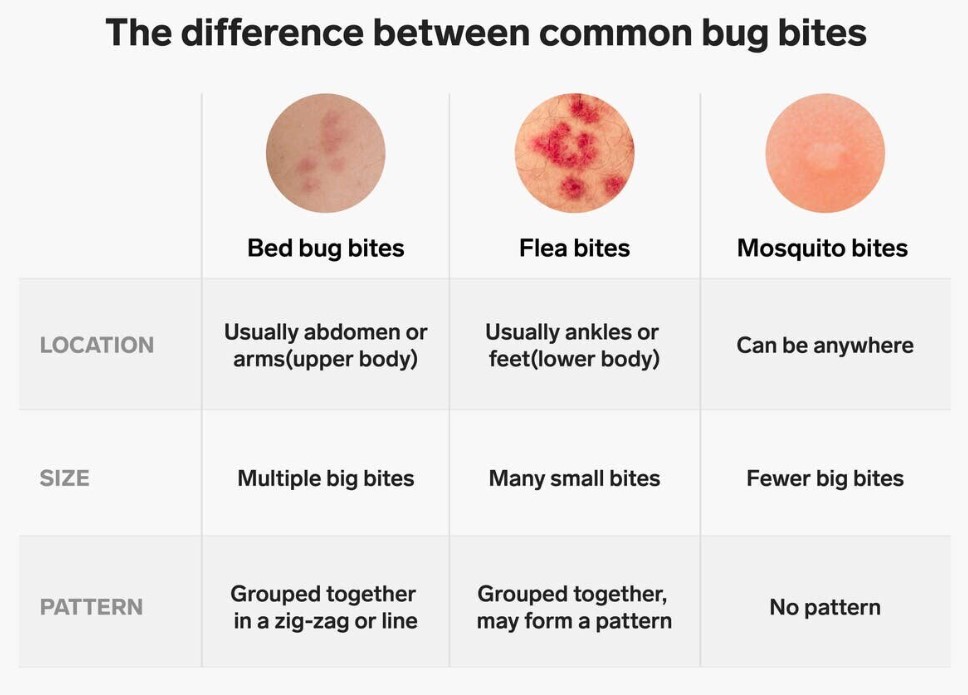BOURSESSENEGAL – Flea bites can be a significant nuisance for both pets and humans. If you’ve ever experienced itchy, red welts on your skin, you may have encountered these pesky parasites. In this article, we will explore the causes of flea bites, their symptoms, effective treatments, and preventive measures to keep you and your pets safe. Let’s dive into the world of flea bites and equip you with the knowledge to combat them effectively!
What Are Flea Bites?
A Brief Overview of Fleas
Fleas are tiny, wingless insects that thrive in warm, humid environments. They feed on the blood of mammals and birds, making them a common problem for pets, particularly cats and dogs. Once fleas infest a pet, they can quickly multiply, leading to a cycle of discomfort for both the animal and its owners.
How Flea Bites Occur
Flea bites occur when these insects attach themselves to the skin of a host. They use specialized mouthparts to pierce the skin and consume blood. A single flea can bite multiple times, causing irritation and an allergic reaction in some individuals.
Symptoms of Flea Bites
Common Signs to Look For
Recognizing flea bites can help you respond promptly. Here are some common symptoms to watch for:
- Itchy Red Bumps: The most noticeable symptom is small, red, itchy bumps on the skin. These often appear in clusters and may resemble mosquito bites.
- Swelling: In some cases, the affected area can become swollen or inflamed, leading to increased discomfort.
- Rash: Some individuals may develop a rash around the bite area, particularly if they have sensitive skin.
- Secondary Infections: Scratching the bites can lead to open wounds, increasing the risk of infections.
Areas Most Affected
Flea bites usually occur on the lower legs, ankles, and feet. However, they can also appear on other parts of the body, especially if the fleas have infested your home.
Treating Flea Bites
1. Home Remedies
If you or your pet suffers from flea bites, various home remedies can provide relief:
Cold Compress
Applying a cold compress to the affected area can reduce swelling and numb the itchiness. Simply wrap ice in a cloth and place it on the bites for 10 to 15 minutes.
Aloe Vera
Aloe vera is well-known for its soothing properties. Apply fresh aloe vera gel directly to the bites to alleviate pain and irritation.
Baking Soda Paste
Mix baking soda with water to form a paste and apply it to the bites. This can help reduce itching and inflammation.
2. Over-the-Counter Treatments
If home remedies don’t provide enough relief, consider over-the-counter treatments:
Antihistamines
Oral antihistamines, like diphenhydramine, can help reduce itching and swelling. Be sure to follow the recommended dosage instructions.
Hydrocortisone Cream
A topical hydrocortisone cream can help alleviate inflammation and itchiness. Apply it directly to the affected area for quick relief.
3. When to See a Doctor
If you experience severe reactions to flea bites or notice signs of infection, such as increased redness, warmth, or pus, seek medical attention promptly. A healthcare professional may prescribe stronger medications or antibiotics if needed.
Preventing Flea Bites
1. Regular Pet Care
Keeping your pets flea-free is essential in preventing flea bites. Regular grooming and baths can help control flea populations.
Flea Treatments
Consider using veterinarian-recommended flea treatments, such as topical solutions or oral medications. These products effectively eliminate fleas and prevent future infestations.
2. Home Cleaning
Fleas can live in carpets, bedding, and furniture. Regular cleaning is crucial for preventing infestations.
Vacuuming
Vacuum your home frequently, especially in areas where your pets spend time. Empty the vacuum bag outside to prevent fleas from returning.
Wash Bedding
Wash your pet’s bedding and your own regularly in hot water to kill any fleas or eggs.
3. Outdoor Precautions
If you live in a region with a high flea population, take precautions when spending time outdoors.
Avoid Tall Grass
Fleas thrive in tall grass and shaded areas. When walking your dog, stick to well-maintained paths to minimize exposure.
Flea Collars
Consider using flea collars for your pets when they go outside. These collars help repel fleas and keep them away.
Understanding Flea Behavior
1. Flea Life Cycle
To effectively combat fleas, it’s essential to understand their life cycle. Fleas go through four stages: egg, larva, pupa, and adult. The entire cycle can take as little as three weeks to complete, depending on environmental conditions.
Eggs and Larvae
Flea eggs are tiny and can easily be overlooked. They fall off the host into the environment, where they hatch into larvae. Larvae thrive in dark areas, such as carpets and cracks.
2. Factors That Attract Fleas
Fleas are attracted to warm-blooded animals, particularly those with fur. Factors like humidity, warmth, and the presence of pets make your home an ideal environment for flea infestations.
Conclusion: Combatting Flea Bites Effectively
Flea bites can be bothersome, but understanding them can help you manage and prevent these irritating encounters. By recognizing symptoms, employing effective treatments, and taking preventive measures, you can minimize the impact of flea bites on your life and the lives of your pets.
Take Action Now
If you suspect flea bites, don’t wait for them to escalate. Use the remedies and preventive strategies mentioned above to regain control. Additionally, ensure that your pets receive regular care to keep them flea-free.
Your Health Matters
Protecting yourself and your pets from fleas is crucial for overall well-being. By staying informed and proactive, you can enjoy a comfortable, bite-free life!
REFERENCE : astabet



